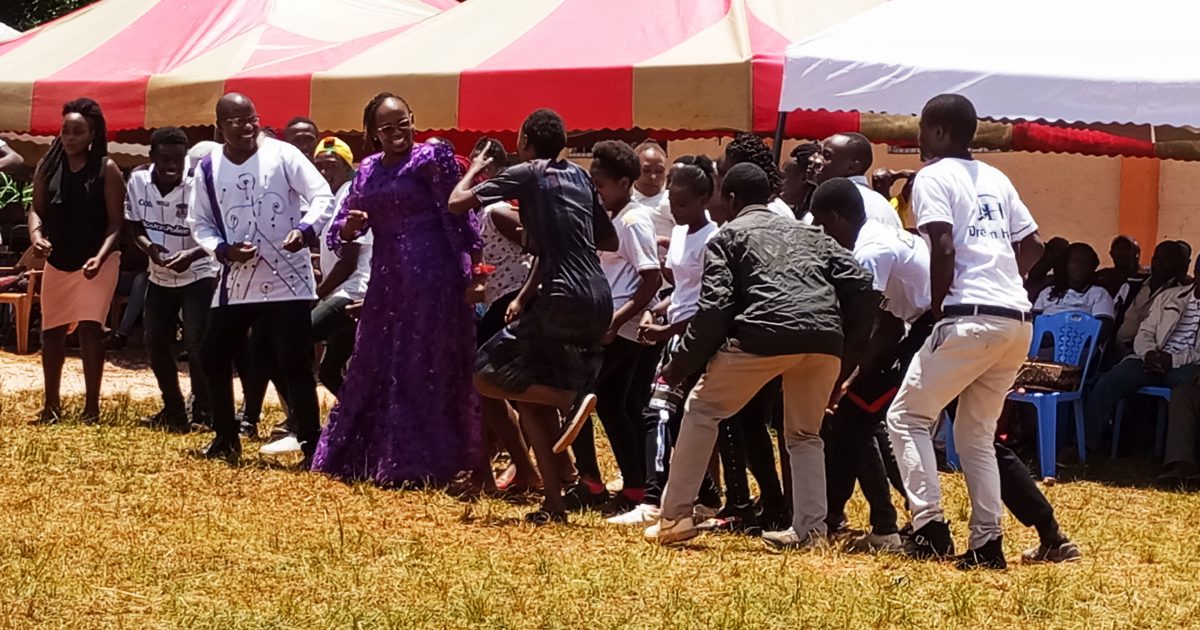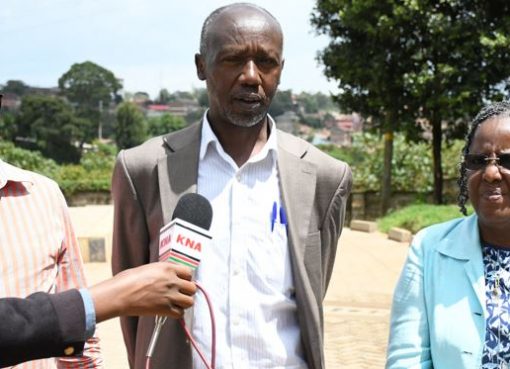A Murang’a philanthropist, Nduta Mwaniki has said that equipping recovering alcoholics with vocational skills is a fundamental step in their fight against addiction.
Mwaniki who is the Chief Executive Officer (CEO) of Dream Hub Foundation, speaking at Kangema vocational training centre said her organization has collaborated with the local vocational training centres where they continue to enroll several recovering alcoholics for artisan courses as a lifeline aiding in their recovery from addiction.
She noted that desperation resulting from unemployment and the high cost of living were some of the factors driving young Kenyans into alcohol and drug abuse and rehabilitating them without offering them a way of earning a livelihood often proved futile which led her to start collaborating with the local vocational training centres.
“We noticed that there is a need to teach employability skills to the young men and women after rehabilitating them,” Mwaniki said,
“Dream Hub has collaborated with Gakoe, Mutitu, and now Kangema vocational training centres where we employ more trainers for the students and provide food for them when they are in school.” She added,
Ms. Mwaniki who explained that she has been at the forefront of the fight against alcoholism for over 25 years inspired by her own family’s struggle with the vice emphasized that equipping the youth with an income-generating skill is an important part of rehabilitation.
According to Mwaniki, 5000 recovering alcoholics in Murang’a have benefitted from free vocational training since she began this program.
“I grew up in a family where my father and brothers were drunkards and this made me realize that something needs to be done about alcoholism.” She said,
“The many years of experience have taught me that having a skill or an income-generating venture plays a big part in enabling those recovering to stay sober.” She added,
The CEO explained that they work closely with the local administration where they educate people against alcohol and drug abuse in their public barazas.
“Once we identify addicts, we offer counseling and rehabilitation before enrolling those successfully rehabilitated to the vocational training centres for skills that will help them earn a living.” She said,
Mwaniki further explained that after completion of the training, the youths are empowered with equipment such as brick or cabro making machines for their startup businesses.
She urged the government and other well-wishers to revive more vocational training centres across the country and enroll many young people so that they can learn artisan skills saying this will go a long way in sustaining the strides made by the government in the fight against alcoholism.
Muguru Member of County Assembly, Moses Muchiri applauded the initiative to revive the vocational centres saying the artisan courses help youths earn a living and act as motivation for them to stay sober.
He applauded this rehabilitation program saying it teaches useful skills to many young people who need them but cannot afford them by themselves.
“Currently this polytechnic has only 150 students but under the partnership with Dream Hub we target 500 more by the end of the month,” he said,
The MCA said he will lobby for employing more trainers and also for funds to improve infrastructure in the institution hence improving the quality of education.
Faith Njoroge who is in charge of vocational training in Murang’a County, on her part explained that the county is keen on ensuring young people have income generating skills.
“We have the first cohort of Murang’a Youth Service (MYS) who were employed to clean up local market centres and are currently undergoing vocational training in various vocational centres fully sponsored by the county government.” Njoroge said,
Njoroge requested the youth to be flexible in career choices and embrace vocational training in order to learn skills after basic education instead of staying idle.
She said that there are currently 4031 students enrolled for regular courses in the various vocational training centres across the county and 1040 students sponsored by MYS for short courses.
Samuel Mwangi, who is a community leader, applauded the government for banning third generation alcohol manufacturers and asked politicians to either keep off or support such initiatives by well-wishers instead of viewing them as competition.
He further called upon parents to encourage and support their children to join TVETs so as to encourage the youths to stay sober as productive members of the society.
Peter Kamathiro, one of the beneficiaries of the program and a recovering alcoholic, formed a group with other addicts and they formed a youth group that is now making a living through baking.
“After rehabilitation, learning how to bake has given us a purpose, a reason to stay sober and we can also provide for our families.” He said,
Kamathiro urged youths to stay away from alcohol and drugs and called upon the community and other well-wishers to help those already addicted through counselling and rehabilitation.
By Purity Mugo





